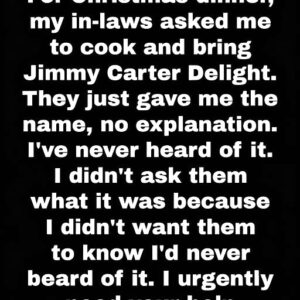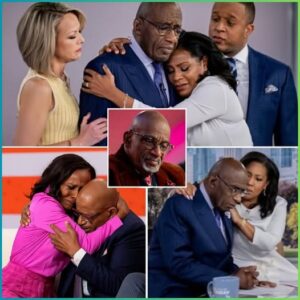Michael Keaton Faces Backlash After Comment on Charlie Kirk’s Assassination
The death of Charlie Kirk has already shaken American politics to its core. The 31-year-old conservative activist, speaker, and founder of Turning Point USA was assassinated on September 10 while participating in a public debate at Utah Valley University. Tyler Robinson, a 22-year-old Utah native, now faces seven counts related to the killing, with prosecutors signaling they will pursue the death penalty if he is convicted.
But beyond the courtroom and the political fallout, Kirk’s assassination has also sparked a wave of cultural aftershocks. Public figures who have commented — or even hinted at commentary — on his death have found themselves in the spotlight, scrutinized for every word. From musicians to media analysts, the line between free speech and insensitivity has become blurred. Now, actor Michael Keaton has found himself caught in that very storm.
A Divisive Remark at a Celebratory Event
On September 15, Keaton attended the 50th anniversary gala of the Investigative Reporters and Editors organization. The Pennsylvania-born actor, known worldwide for his iconic roles in Batman, Birdman, and most recently Beetlejuice Beetlejuice, addressed the audience with a tone of solemnity.
Keaton began his speech by acknowledging Kirk’s family, emphasizing the humanity of loss before politics:
“Regardless of how I probably — not probably — have disagreed with many things he said, Charlie Kirk leaves behind two kids and a wife. You gotta remember that.”
The comment appeared respectful at first, particularly in a climate where many have chosen to mock or dismiss Kirk’s death. But what came next sparked controversy:
“Because in the end, shooting people will never answer anything, and the irony that he was killed with a gun is unbelievable.”
For Keaton, the remark may have been intended as a commentary on the larger problem of gun violence in America — a topic that has long polarized the nation. But for many of Kirk’s supporters, the suggestion of “irony” in his death felt like a thinly veiled jab at Kirk’s lifelong defense of Second Amendment rights.
The Swift Backlash
The response online was immediate and intense. Conservative commentators, activists, and ordinary citizens took to X (formerly Twitter), Instagram, and TikTok to express their outrage.
One user wrote:
“This right here is why sooo many people checked out of watching anything Hollywood creates. Third grade education on display again.”
Another said bluntly:
“The only irony is that far left subhumans who scream for gun control keep using guns to hurt innocent law abiding Americans. Hypocrite.”
Others labeled Keaton “a moron” and “garbage,” with calls for boycotts of his upcoming projects quickly surfacing. Hashtags such as #BoycottKeaton and #HollywoodHypocrisy began trending within hours of his remarks circulating online.
Yet, the backlash was not universal. Some defended Keaton, arguing that his remarks were both fair and respectful. One comment circulating on X read:
“He disagreed with Kirk. Ironic he was shot with a gun. What’s so offensive? Y’all need to take it easy on the cult stuff.”
Hollywood’s Long Dance with Politics
Keaton’s comments cannot be separated from the broader relationship between Hollywood and American politics. For decades, actors, musicians, and filmmakers have been both celebrated and criticized for speaking out on political and social issues. From Jane Fonda’s protests during the Vietnam War to Clint Eastwood’s speeches at Republican conventions, celebrities wield influence that extends beyond the screen.
But in today’s polarized environment, the stakes are higher than ever. When a public figure comments on an assassination tied to political violence, the margin for error is razor thin. Any perceived disrespect is amplified, dissected, and fed into the outrage cycle.
Keaton, who has generally kept his political commentary limited compared to more outspoken peers, may not have expected the level of backlash he received. Yet the climate surrounding Kirk’s death is so charged that even a single word — “irony” — became the spark for days of controversy.
The Irony Debate: Insight or Insult?
At the heart of the storm is the word irony. Keaton framed Kirk’s death as ironic because of his stance on guns and opposition to gun control legislation. For some, this was a legitimate observation — highlighting the tragic contradiction of dying by the very weapon one defends.
For others, however, the use of “irony” seemed dismissive, even mocking. To call Kirk’s death ironic, they argued, was to diminish the horror of assassination and reduce it to a clever wordplay.
The divide illustrates how language itself becomes politicized. In an era when every phrase is scrutinized, what one person sees as thoughtful reflection, another sees as cruelty.
The Broader Backlash Against Comments on Kirk’s Death
Keaton is far from the only public figure to face heat in the wake of Kirk’s assassination. The fallout has become a pattern:
Ava Raine, daughter of Dwayne “The Rock” Johnson, was criticized for reposting a message that some interpreted as celebrating Kirk’s death.
Bob Vylan, a UK punk band, openly called Kirk a “piece of s***,” sparking fury and forcing them to cancel performances.
Matthew Dowd, an MSNBC analyst, lost his job after describing “hateful thoughts” while discussing Kirk on air.
The common thread is that in a moment of national grief and division, words carry extraordinary weight. For Kirk’s supporters, any sign of disrespect is unacceptable. For critics, however, the pressure not to speak becomes its own form of censorship.
Public Figures Under the Microscope
Keaton’s experience reveals the precarious position of celebrities in times of political violence. Unlike politicians or pundits, whose careers thrive on sharp commentary, actors and entertainers risk alienating half their audience with a single remark.
Hollywood in particular has long been accused of harboring liberal bias, and Keaton’s words have been cast as further proof of “elitist Hollywood hypocrisy.” On the flip side, those defending him see his comments as a brave acknowledgment of America’s gun problem.
This tug-of-war shows how celebrities have become unwilling participants in political discourse, their statements instantly reframed as cultural ammunition.
Grief, Legacy, and the Family Left Behind
Lost amid the firestorm over Keaton’s comments is the reality of the tragedy itself. Charlie Kirk leaves behind a wife, Erika, and two young children. For them, the political debates and celebrity controversies are background noise to the raw grief of losing a husband and father.
Keaton’s opening acknowledgment of Kirk’s family highlights this tension. He attempted to balance disagreement with compassion, but the controversy demonstrates how difficult it is to strike the right chord in a polarized climate.
For Kirk’s supporters, the focus remains on preserving his legacy, protecting his family from further hurt, and ensuring that his death is not minimized by political commentary.
What Comes Next for Michael Keaton
Keaton’s future in the wake of this controversy is uncertain. Unlike a political figure who thrives on confrontation, Keaton is primarily an actor whose career depends on public goodwill.
Will audiences separate his work from his words? Or will his comments follow him into upcoming projects, shaping how fans — and critics — receive them? Hollywood history shows both outcomes are possible. Some actors have weathered political controversies with little impact, while others have faced boycotts and long-term damage.
Michael Keaton’s remark about the “irony” of Charlie Kirk’s death may seem small in isolation. Yet in the context of a nation already on edge, it became a flashpoint.
For some, his words were an honest reflection on gun violence. For others, they were a cruel jab at a man whose life ended violently and tragically. The divide reflects more than just differing opinions about Keaton — it reflects America’s inability to grieve without politicizing, to mourn without debating, and to separate tragedy from ideology.
In the end, the controversy is not just about what Keaton said. It is about the kind of country where a single word at a gala can become another battlefield in an endless culture war.
The fallout from Keaton’s comments has not only fueled online arguments but also highlighted a growing rift between Hollywood and conservative America. In the past decade, public trust between the entertainment industry and right-leaning audiences has eroded at a rapid pace, with each new controversy widening the divide. Keaton’s words, though brief, have become yet another flashpoint in this ongoing cultural battle.
For many conservatives, the issue was not simply what he said, but the context in which he said it. To them, invoking “irony” when discussing a high-profile assassination — especially so soon after the event — felt like a deliberate jab, regardless of whether he prefaced his remarks with condolences. Critics argue that Hollywood elites often fail to understand the pain and outrage that accompanies political violence, instead treating it as an opportunity to make larger ideological points.
Keaton’s defenders, however, insist that his statement has been taken out of proportion. They point out that he explicitly acknowledged Kirk’s family and condemned violence before drawing attention to the paradox of a pro-gun advocate dying by gunfire. To these supporters, his words were not an insult but an uncomfortable truth about America’s ongoing relationship with firearms.
The debate has spilled over into mainstream outlets, where pundits and commentators have weighed in. Conservative talk radio hosts framed the remarks as proof of Hollywood’s disdain for Middle America, while progressive columnists argued that the uproar illustrates how any critical comment about a conservative figure is immediately weaponized online.
Meanwhile, Keaton himself has not issued a follow-up statement, leaving both critics and supporters to interpret his intent. His silence has only fueled speculation: was his remark a slip of the tongue at a formal gala, or a carefully chosen observation meant to provoke reflection?
Adding to the intensity of the backlash is the timing. America is still reeling from the shock of Kirk’s assassination, and emotions are raw. In such an environment, even a nuanced comment can be heard as either empathy or cruelty depending on the listener’s political leanings. Keaton’s long career and generally apolitical public persona make this controversy even more surprising, as he has rarely been associated with outspoken political commentary compared to other actors.
In online forums, some longtime fans expressed disappointment, saying they wished he had “just stuck to acting.” Others countered that celebrities, like any citizen, have the right to speak freely about current events — even if their views are unpopular. The conflict underscores a recurring dilemma in modern American culture: should entertainers be expected to remain silent on politics, or do they carry a unique responsibility to use their platform for commentary?
The broader implications of Keaton’s words also tie into America’s decades-long struggle with gun violence. Whether intended or not, his remark about irony places the spotlight back on a deeply divisive issue. Pro-gun advocates argue that firearms are essential tools of self-defense and freedom, while gun control supporters highlight the staggering toll of shootings nationwide. Kirk’s death, tragic in itself, has now become entangled in this larger national debate — and Keaton’s comment ensures it will remain a talking point well beyond the investigation into his killing.
For many observers, the episode reveals how quickly tragedies in the U.S. can be politicized, often within days or even hours. The line between mourning and debate grows thinner with each new incident, and Keaton’s remarks are a case study in how cultural figures unintentionally accelerate that shift. What one person hears as an expression of sorrow mixed with reflection, another interprets as disrespect or even celebration of violence.
The coming weeks may determine whether this controversy lingers or fades. If Keaton chooses to address it further, he could either clarify his intent or risk deepening the divide depending on his wording. If he remains silent, critics may continue to frame him as emblematic of “Hollywood arrogance,” while defenders will likely argue that his restraint is proof that he has nothing to apologize for.
What is clear is that the assassination of Charlie Kirk continues to ripple outward in ways few could have predicted. Beyond the criminal case against Tyler Robinson, the tragedy has sparked conversations about free speech, political violence, and the power of words in shaping public perception. Michael Keaton, perhaps unintentionally, has found himself at the intersection of all three.
Whether remembered as an insensitive remark or a sobering reminder of America’s contradictions, his words have ensured that the cultural debate surrounding Kirk’s death will extend far beyond the courtroom — and well into the heart of America’s ongoing struggle with identity, division, and the meaning of tragedy in a polarized nation.





